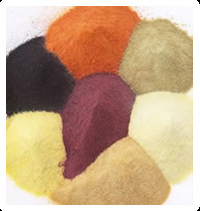Rhodiola Purchase & Information

Alternative Names
Arctic Root, Extrait de Rhodiole, Golden Root, Hongjingtian, King's Crown, Lignum Rhodium, Orpin Rose, Racine d'Or, Racine Dorée, Racine de Rhadiola, Rhodiole, Rhodiole Rougeâtre, Rodia Riza, Rose Root, Rose Root Extract, Rosenroot, Roseroot, Rosewort, Siberian Golden Root, Siberian Rhodiola Rosea, Snowdown Rose
Scientific Name
Rhodiola Crenulata
Why Do People Use Rhodiola?
The oral preparations of Rhodiola rosea (Rhodiola), like rhodiola powder, can be used for increasing stamina, energy, as a so-called adaptogen to help the body adapt to and resist physical and environmental stress, for improving athletic performance, depression, improving sexual function, for hyperlipidemia and cardiac disorders such as arrhythmias and anxiety. It is also considered effective for treating cancer, for diabetic patients, tuberculosis, swine flu, preventing cold and flu, liver damage, aging, strengthening the nervous system, improving hearing, shortening recovery time after prolonged workouts and to enhance immunity system of human body.
Is It Safe To Use?
Possibly Safe - Rhodiola powder when consumed orally, appropriately and for short term period is considered safe. According to recent clinical studies, oral consumption of rhodiola extract taken in a dosage of 340 mg two times every day is considered safe for period 6 to 10 weeks.
Avoid During Pregnancy & Lactation - Rhodiola should be avoided by pregnant and breastfeeding females because there is scarce and unreliable information available in this respect.
How Effective Is Rhodiola?
To rate the effectiveness of rhodiola powder, in following conditions there is scarce information available:
• Athletic performance
• Bladder cancer
• Depression
• Fatigue
• Generalized anxiety disorder (GAD)
More confirmations are required to rate the safety of rhodiola for other uses.
How Rhodiola Works?
The most effective part of Rhodiola rosea is the root. Rhodiola consists of more than 30 components such as phenylpropanoids, phenlyethanoids, cyanoglycosides, flavonoids, triterpenes and monoterpenes.
The phenylpropanoid glycoside also known as salidroside may be responsible for a number of the stimulant or adaptogenic impacts of rhodiola. Different constituents obtained from rhodiola include rhodioloside A-E, rhodioniside, rosin, rhodiolin, lotaustralin, rosarin, rosavin, rosiridol, rosiridin, acetylrhodalgin and rhodalgin. It is suspected that these constituents may also be included in rhodiola's adaptogenic impacts.
Rhodiola also contain caffeic acid and tannins gallic acid along flavonoids and chlorogenic acid, for example, proanthocyanidins and catechins. These mixtures are possibly responsible for the antioxidant effects of rhodiola extracts. In vitro analysis, salidroside diminishes apoptosis of neuroblastoma cells presented to hydrogen peroxide, which recommend that it may protect against oxidative stress damage.
The quantity of active constituents in rhodiola can differ relying on the plant material collection period and source of plant material.
Extract of rhodiola shows antiarrhythmic properties and safe is against reperfusion injury after ischemia. These impacts can be nullified by naloxone infusion, proposing that the mechanism may include as enhance in endogenous opioids.
Rhodiola seems to have major central nervous system stimulant action. In animal model, a rhodiola extract of 1% salidroside and 3% rosavin has stimulant and anxiolytic impacts. In animal models, the salidroside constituent also has sedative impacts. Extract of rhodiola has also shown potential in improving memory and learning.
Extracts of rhodiola may also protect from cardiac damage caused by stress level by preventing rise in cyclic-AMP and cardiac catecholamines.
There is some interest toward utilizing rhodiola for remedy of hypothyroidism, because of its fatigue-reducing, antioxidant and antidepressant effects, however this hypothesis has not been tested in humans.
Rhodiola may have effective results in patients suffering from diabetes. According to studies in animal model of diabetes, particular extract of rhodiola has antioxidant effects.
Some proof recommends that extract of rhodiola has anti-inflammatory impact and can also reduce the level of C-receptive protein (CRP). Healthy individual, who took a particular extract of rhodiola (Rhodax, Phoenix Labs) for a few days after and before debilitating exercise had lower level of C-receptive protein as compared to those individuals who used placebo.
Rhodiola powder may enhance adenosine triphosphate (ATP) turnover in muscle. But study in string athletes discovered no impact on muscle ATP depleting activity.
Rhodiola appears to have anticancer effects. In vitro studies, extract of rhodiola may hinder prostate and liver cancer cell lines.
What Are The Side Effects /Adverse Reactions of Rhodiola?
Genrally, Rhodiola rosea is well tolerated, but rhodiola extract can have adverse effects such as dry mouth and dizziness.
How Rhodiola Interacts With Other Herbs and Supplements?
Not known.
How Rhodiola Interacts With Drugs?
Not known.
How Rhodiola Interacts With Foods?
Not known.
How Rhodiola Interacts With Lab Tests?
Not known.
How Rhodiola Interacts With Diseases and Conditions?
Not known.
What Should Be the Dose/Administration of Rhodiola?
ORAL
To improve athletic performance, particular extract of rhodiola (Finzelberg, GmbH, Germany) should be consumed every day in a dosage of 200 mg.
For betterment of fatigue, particular extract of rhodiola (SHR-5) should be orally used in a dose of 50 mg two time every day or 170 mg every day or a solitary dosage of 370 to 555 mg has been utilized.
For the treatment of fatigue, particular extract of rhodiola (SHR-5) 340 mg should be ingested every day or 340 mg dosage twice every day can also be used.
To cure generalized anxiety disorder (GAD), particular extract of rhodiola (Rhodax) 170 mg should be utilized every day.
Comments
Rhodiola is local plant in the cold regions of Alaska, Asia and Europe.
General Certificate of Analysis (COA)
Specification sheet links below are a standard copy of the COA less the batch or lot number and manufactures dates. Specification sheet can be dated and should only be considered as a general information. Please contact and request an up to date COA if needed for specific updated information before placing order by filling out the contact form with product name and SKU number. If ordering quantities of twenty five kilos or more contact for availability.
